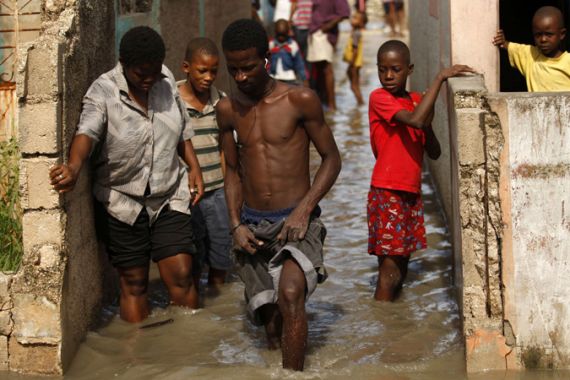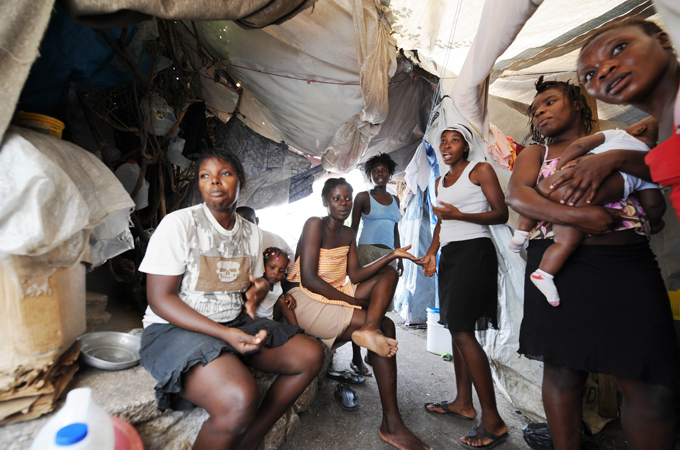Cholera spreads to Haitian capital
More than 100 cases registered as thousands of people in Port-au-Prince’s camps face growing risk of catching disease.

 |
| Nearly half of Port-au-Prince’s three million residents have been living in tents since the January 12 earthquake [AFP] |
At least 115 cases of cholera , including the death of one person, have been registered in Haiti’s capital, the most significant warning sign yet that the epidemic has spread from outlying areas to threaten hundreds of thousands of people in the city’s camps.
Officials refer to a patient who has been hospitalised with confirmed and suspected cholera as a case.
Keep reading
list of 4 itemsAfter the Hurricane
World’s coral reefs face global bleaching crisis
Why is Germany maintaining economic ties with China?
Samples from patients in Port-au-Prince are being tested in a laboratory to confirm the presence of vibrio cholera bacteria, which has already killed at least 643 people in Haiti, said Gabriel Timothee, the health ministry’s executive director.
If confirmed, the bacteria could imperil an estimated 2.5 to 3 million inhabitants.
He said many of the hospitalised patients are believed to have recently arrived from parts of Haiti such as the Artibonite Valley, where the epidemic was first registered and has done its most damage.
Al Jazeera’s Sebastian Walker, reporting from Port-au-Prince, said that hospitals are “overwhelmed”.
“Given the sheer number of cases that hospitals are receiving, it is simply not possible to conduct laboratory tests in order to give 100 per cent overall confirmation that this is cholera,” he said.
Rapid spread
In little more than three weeks it is suspected of infecting tens of thousands of people, though only about a quarter of people infected normally develop symptoms of serious diarrhea, vomiting and fever.
More than 6,400 of the known 9,123 cases to date have been in the agricultural region, clustered around the Artibonite River.
Most of the people suspected of having the disease in the capital are in the Cite Soleil slum, the expansive oceanside shantytown at the capital’s far northeastern edge and its closest point to the valley.
Since its discovery in late October, the disease has spread to half of Haiti’s 10 administrative regions, or departments. More than 200 people have been hospitalised in the West department, where Port-au-Prince is located.
Nearly four per cent of the thousands hospitalised have died, most from extreme shock brought on by dehydration.
Investigation under way
Cholera had never been documented in Haiti before its sudden appearance last month. Officials are concerned that floods triggered by Hurricane Tomas on Friday and Saturday could exacerbate the spread of the disease, which is transmitted through the consumption of fecal matter contained in contaminated water or food.
Our correspondent said: “It is almost impossible to contain this disease in an environment like this. Port-au-Prince is a very overcrowded city with appalling sanitation infrastructure.”
The release of a dam on the Artibonite River caused the infected waterway to swell Monday, but there were no reports of major flooding.
An analysis by the CDC has found that the cholera outbreak in Haiti most closely matches a strain of the disease found in South Asia.
Public health experts including Paul Farmer, the UN’s deputy special envoy to Haiti, have called for an investigation into the origin of the outbreak.
An unconfirmed theory is that the disease was introduced to Haiti by UN peacekeepers from Nepal who are based on a tributary to the Artibonite River.